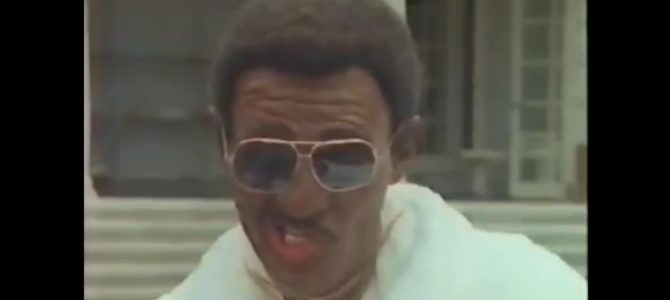Canadian Prime Minister Justin Trudeau is the latest liberal politician to be swept up in a blackface controversy. Much like the still-sitting Virginia Gov. Ralph Northam, the woke darling of the Great White North apparently darkened his face as part of a costume. Unlike Northam, Trudeau did it at least three times between the early 1990s and 2001. He has apologized, but says at the time he did not believe his actions were racist, but now understands they were.
But were they? In regard to the first incident to surface, the PM claims he was dressed as Aladdin for a costume party. Now, setting aside the question of whether adults should wear costumes at all, one must ask, is dressing and wearing makeup to pretend to be a fictional character racist? In the vast majority of cases, the answer is no.
It is important to note a serious exception to this rule. Direct references to minstrelsy, the late 19th and early 20th century performance style in which both white and black performers used makeup to create exaggerated black features, expresses a reinforcement of stereotypes that should be avoided in all cases except perhaps in artwork dealing with the subject. It’s like donning a big nose and a moneybag to be a Jew for Halloween — just don’t do it.
But what really makes traditional minstrel blackface racist is not the makeup, it’s the narrative behind it, which generally depicted a well-intentioned, talented, but lazy and dumb black person. So donning that particular kind of makeup clearly references those odious ideas. This is simply not true of dressing up as Aladdin.
What is telling is that Trudeau did this more than a decade ago. It is absolutely clear that the rules have changed. Specifically, what happened is that racism was divorced from intent.
When Billy Crystal darkened his face to do his impression of Sammy Davis Jr. on “Saturday Night Live” in the 1980s, nobody viewed that as racist because the intent clearly wasn’t racist, and it didn’t hurt that it was an amazing and hilarious impression. Today that routine would likely get him banned from the show.
This is because intent is now irrelevant. The mere act of darkening one’s face has become a form of profanity. But this is deeply misguided and at odds with the purpose and history of costume. In every civilization that has ever existed, costume and makeup have been used to explore the mysterious and transcendent nature of being human. It is an act of becoming something we are not.
In the rubric of critical race theory, so ascendant in our culture over the past decade, a new set of rules has emerged. A hierarchy has been established in which those at the top may not take on or appropriate the garb or appearance of those below them, or of those more oppressed than they are. This does not operate in reverse. Nobody minds if a black or Hispanic person dresses up as the Joker. This is tied to a notion that human empathy and understanding are on some level impossible when it comes to race. And that is a dangerous idea.
It is understandable that conservatives who have warned about the dangers of wokeness should have some schadenfreude over the idea of liberals being dragged for wearing dark makeup. But this is not a time when we should jump on the condemnation bandwagon. After all, there are plenty of actual reasons why Trudeau is a horrible prime minister.
Rather, we should take this opportunity to ask if this new set of rules surrounding race is really helping. Are the shifting prohibitions on appropriation a guardrail against racism? Or are they in fact a barrier to empathy and the idea that essentially skin color is meaningless and all human beings are more or less the same?
Can we imagine a time when this prohibition is lifted? When a white guy can put on makeup to be Black Panther and a black guy can put on makeup to be Donald Trump? Is it possible that these prohibitions are reinforcing the very social divisions they are intended to dismantle?
At the very least, this should be a conversation, not a knee-jerk reaction to an arbitrary set of rules. But that kind of conversation takes courage, and in today’s environment, that courage is lacking. We should muster it. Because what we have going on right now doesn’t seem to be working.








